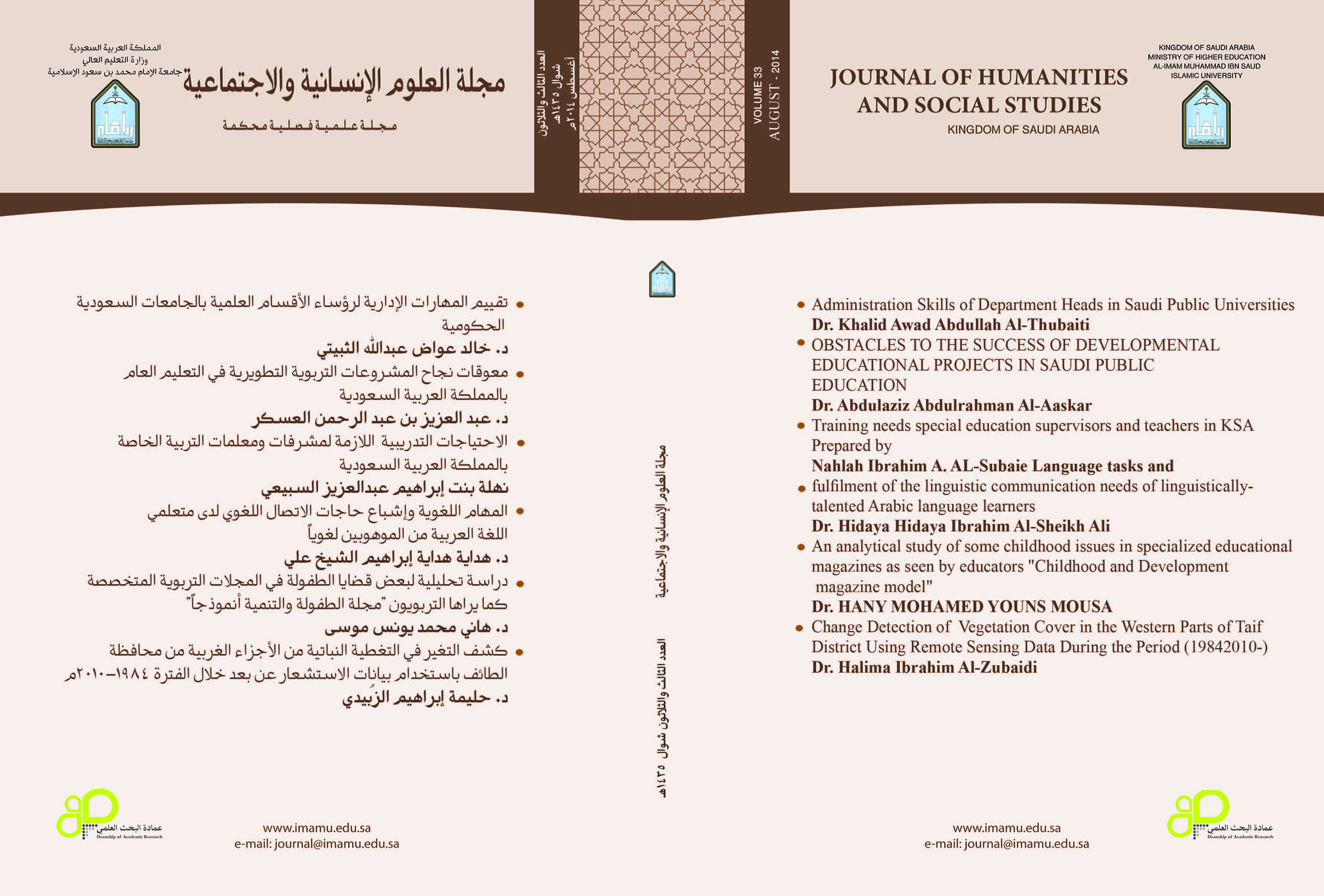OBSTACLES TO THE SUCCESS OF DEVELOPMENTAL EDUCATIONAL PROJECTS IN SAUDI PUBLIC EDUCATION
Abstract
This study aims at identifying the most significant obstacles to achieving success in the developmental educational projects in the Kingdom of Saudi Arabia. It consists of a sample of 346 teachers of the three levels of public education in Riyadh. The researcher uses a questionnaire for data collection, in addition to the descriptive survey research method. The findings of the study confirm that the obstacles in the section of human and financial resources lead all the obstacles, followed by obstacles in the section of follow up and assessment, then obstacles in the section of organization, and finally, obstacles in the section of planning. All of these are considered measurable obstacles based on the criterion the study adopts. Further, the study reveals that each of the sections of the questionnaire contains the two most prominent obstacles. The two most distinguished obstacles in the section of planning are: a) not inviting parents, students, teachers, and the school’s administration to participate in planning projects; b) adopting projects from different environments regardless of the local environment. The two most distinct obstacles of the section of organization are: a) having more than one leader undertaking the project, which leads to leaders having conflicting ideas; and b) not making use of local and international experiences in studying and executing projects. The two most remarkable obstacles of the follow up and assessment section are: a) lacking a precise mechanism to assess the output of teaching; and b) the low efficiency of follow up and supervision of projects. The two most eminent obstacles of the section of human and financial resources are: a) the increase of the teacher’s teaching hours and its incongruence with the project's requirements; and b) the large number of students in classrooms.




